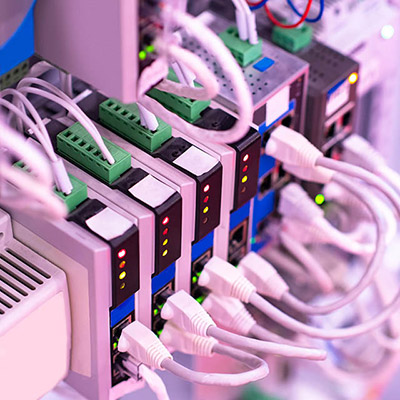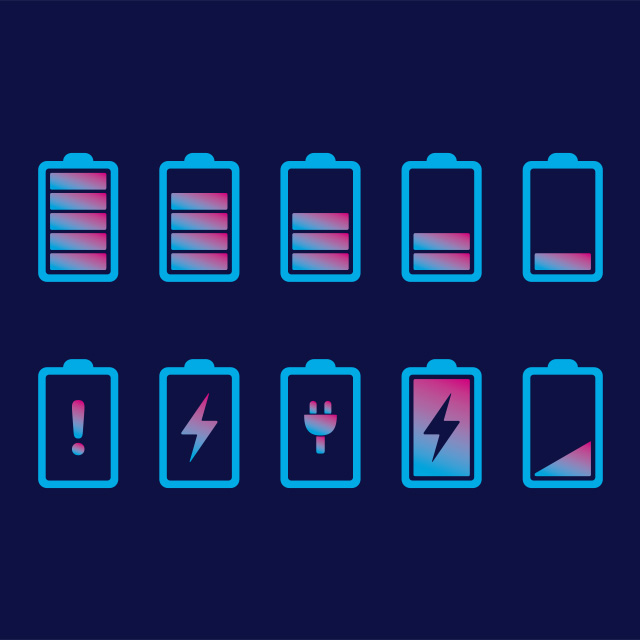How to Select and Buy UPS (Part II)
We've already covered what UPS is, what it can do, and how it can be used in the home, in server computer rooms and data centers, and even in medical institutions. When uninterrupted power is needed, UPS is simply the best go-to solution that will keep these places up and running.
Now that you know more about what UPS does and how it can be useful for either your home, business, or organization, you might be wondering where else it can be used, and why it should be considered for your needs. Which is the right application that will fit your needs?
As we talked about before, UPS does so much more than just provide power during an outage. So, it's important to look at different applications in order to learn more about what you'll actually be getting.
With that in mind, let's cover several of those applications so you can make the most well-informed selection.
Overviews
- Retail or Wholesale
- Edge Computing
- Cloud
- Infrastructure
- Industrial
- Choosing the Right UPS for Your Needs
Retail or Wholesale
If you work in a retail environment, think about how disastrous a power outage could be for you and your customers. Not only could you lose important information and data, but you simply wouldn’t be able to keep your business running during the outage. If you have a brick and mortar store, you don't want customers to have to worry until the problem is fixed.
UPS can be used in retail or wholesale to make sure check-out counters work normally during an outage. This will ensure that everything is accounted for and things like credit card information from customers won't be compromised. Emergency lighting is often a necessity during a power outage, and UPS can provide that lighting, illuminating helpful signage.
Finally, UPS can help to keep ventilation equipment up and running in these environments, to ensure everyone's safety.
Edge Computing
Edge computing is designed to bring data storage closer to a necessary location to process it faster. Instead of a cloud-based data center doing all of the work, it keeps the data“close to home”.
UPS can help with edge computing applications by allowing processes to occur during a power outage. For example, gas stations can still operate “pay-at-the-pump” services where consumers need to use a credit card.
In instances where there is a lack of stable power, UPS can also help to ensure the long-term use of edge devices, so no data will be lost.
Cloud
Cloud computing has become increasingly popular in recent years, and for plenty of good reasons! It is dependable, secure, and can offer a sense of safety if there is a power outage or data breach.
Using UPS can take your cloud management to a different level by providing:
- High-efficiency output that can cut electricity costs
- A minimization of system downtime and reduced cost of ownership
- Reduced land cost thanks to miniturized design
- Increased space utilization of IDCs
- Easy maintenance
- Independent power supply that won't affect the general power backup
UPS should be considered critical in cloud computing, especially if you have a large amount of important data at stake.
Infrastructure
Using UPS in infrastructure simply helps to ensure that everyday operations remain smooth. People often take for granted simple things like electronic signage, but if there is an emergency situation or power outage, those signs are needed more than ever to inform individuals of what to do and how to stay safe.
UPS can be used to power electronic signage on roads, in stadiums, on billboards, museums, and more. For example, if there is a terrible rain storm and power is out all over, drivers on the road might have a difficult time seeing or knowing where to go. Having electronic signage that works even in the midst of a disaster can direct drivers to safety.
UPS can also be used to make sure public transportation systems run normally. That includes everything from stations and airports to metros. Even in an outage, people need to have information and may need to get somewhere quickly. If there is an emergency situation, UPS can also be used to ensure that warning messages can be delivered to provide safety instructions. So, while many take infrastructure for granted, it isn't immune to disasters and outages. That's why it's so important to make sure there are no lapses in time during an outage.
Industrial
The industrial sector is at the core of innovation. From large, heavy machinery to precision equipment, there are so many aspects of this industry that it's impossible to list them all.
But, they can all benefit from UPS in different ways.
UPS is able to support a long-term power backup, which can be necessary in some cases when the power supply is off for an extended period of time.
Because many pieces of industrial equipment need to work around the clock and provide precision results, it's important that there are no interruptions. Having consistent power a UPS will help to ensure that these pieces of equipment continue to work properly so there are no mistakes within their processes.
There is a wide variety of UPS options when it comes to industrial solutions. These options can keep costs down and a provide consistent, powerful performance that your business may depend on. Plus, having a UPS in place will help to save you exponetntial costs if there is ever an emergency or outage, because nothing will need to be recovered.
Choosing the Right UPS for Your Needs
Understanding how UPS can benefit your industry and very specific applications is important. Now that you know just how it can be used and how it can keep your livelihood protected (and even protect others), feel free to browse our product selection.
If you have any questions or still need help in choosing the right UPS, contact FSP today. A member of our team will be happy to help you and guide you in the right direction when it comes to choosing a UPS for your specific requirements.
Related Articles
About FSP
FSP Group is one of the global leading power supply manufacturer. Since 1993, FSP Group has followed the management conception “service, profession, and innovation” to fulfill its responsibilities as a green energy resolution supplier.









